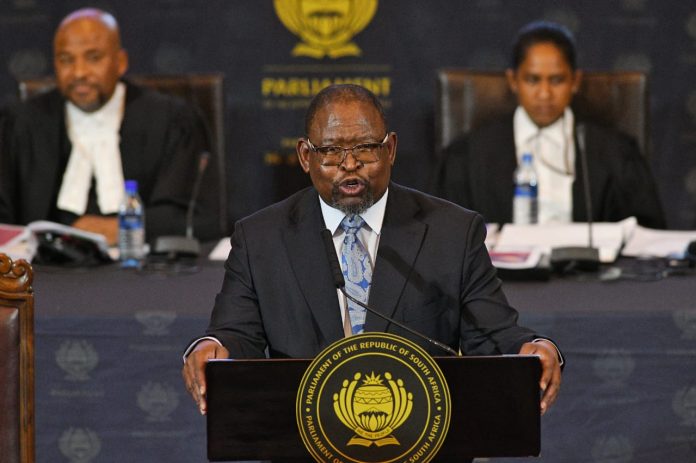Finance Minister Enoch Godongwana delivered the Medium-Term Budget Policy Statement (MTBPS), at City Hall earlier today.
It paints a picture of an economy under severe strain as debt balloons, servicing this debt becomes more expensive, and growth remains very low.
South Africans can get ready for some form of tax increase in the February budget – as Treasury signaled tax measures will be announced to collect R15 billion in extra tax revenue. It’s not yet clear what form this will take, whether it be a hike in personal income tax or VAT.
Here are some of the biggest points in Godongwana’s speech:
- National Treasury has forecast a real Gross Domestic Product (GDP) growth of some 0.8% in 2023 with growth forecast at 1.4% between 2024 and 2026.
- Revenue collection is expected to fall by some R56 billion below the 2023 Budget predictions. The MTBPS notes that slowing commodity exports, slower growth, downward revisions of the tax base growth, slowing corporate tax collections and lower net VAT collections have all impacted tax revenue. The 2023 Budget had projected collections would reach some R1.78 trillion but that has now been revised down to R1.73 trillion.
- The main budget deficit has increased by R54.7 billion compared with the 2023 Budget estimates. This reflects lower revenue performance, higher wage bill costs and higher projected debt-service costs. The main reasons for this are a sharp fall in corporate income tax, particularly from the mining sector, although personal income tax collection was better than forecast.
- To cater for the growing pressures imposed by climate change on infrastructure, especially at the local level, government has created a resource pool to specifically respond to future disasters. R372 million has been added to the Municipal Disaster Response Grant, while R1.2 billion has been added to the Municipal Disaster Recovery Grant, to cover the repair and rehabilitation of infrastructure damaged by flooding.
- Work is underway to reconfigure the structure and size of the State as part of government’s efforts to improve the efficiency and effectiveness of public spending. Government is preparing a joint plan to rationalise departments, entities and programmes over the next three years.
- Government has extended the COVID-19 Social Relief of Distress Grant (SRD Grant) until March 2025 while it considers social security policy reforms and a funding model. R34 billion has been allocated to extend the grant by another year.
- Government expects to borrow an average of some R553 billion per year over the medium term. As a result, gross debt rises from R4.8 trillion in 2023/24 to R5.2 trillion in the next financial year. By 2025/26, it will exceed the R6 trillion mark. Gross government debt will rise to 77% of GDP by 2025/26. Debt service costs, as a share of revenue, will increase from 20.7% in 2023/24 to 22.1% in 2026/27.
The Minister said the most effective way of funding government is through an efficient tax administration and by broadening the tax base.
“SARS will continue its focus on enforcing compliance in areas such as debt collection, fraud prevention, curbing illicit trade, voluntary disclosures, and encouraging honest taxpayers to comply voluntarily.
“Every additional Rand of revenue collected is one Rand less which we have to borrow,” he said.


